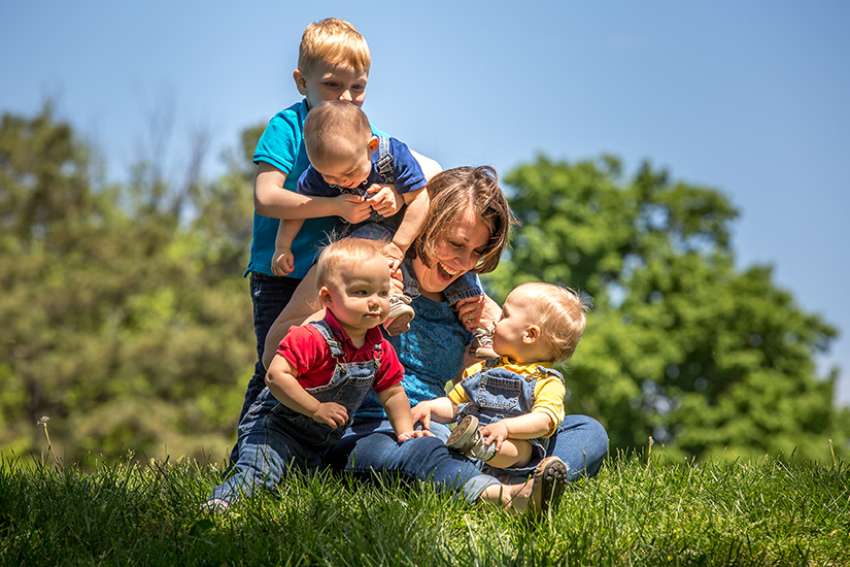A mother plays with her triplets and other son at a park in St. Louis April 24.
CNS photo/Lisa Johnston, St. Louis Review
Hungary to end income tax for moms of at least four to address plummeting population
By Catholic News Agency
BUDAPEST, Hungary – In an effort to encourage Hungarians to have more babies, the prime minister of the country has announced that women with four children or more will be exempt from paying income tax for life.
In a speech over the weekend, Prime Minister Viktor Orban also promised to reduce mortgage payments for those with children, offer state aid in purchasing larger family vehicles, include grandparents on maternity leave, add day care options, and introduce new loans available for families.
The Washington Post reports that Hungary’s fertility rate is currently 1.45 children per woman, well below the replacement rate of 2.1 children per woman.
According to Eurostat data, Hungary saw some 94,000 live births in 2017, compared to 131,900 deaths.
The low birth rate combined with some of the continent’s most stringent immigration policies and a rush of young workers leaving the country to seek better wages abroad has put Hungary on the verge of a demographic crisis, threatening serious economic consequences if the population trends are not reversed.
Orban stressed that an increase in “Hungarian children” – and not an increase in immigrants – is the solution to the nation’s demographic problems.
“Migration for us is surrender,” he said, according to the Washington Post.
State Secretary for Families Katalin Novak told the BBC that “Increasing the number of births is very difficult, because we have less and less women of child-bearing age.”
Women of child-bearing age are expected to decline in number by 20 percent in the next 10 years, so “less and less women need to have more and more babies,” she said. The goal is for the fertility rate to hit 2.1 in the next decade.
The policy comes as birth rates continue to decline in Europe, with every country in the European Union currently seeing fertility rates below the replacement rate.
France and Germany are among the other countries that have created policies to incentivize couples to have more children, but have still struggled to substantially increase the national fertility rate.
Tagged under:
Please support The Catholic Register
Unlike many media companies, The Catholic Register has never charged readers for access to the news and information on our website. We want to keep our award-winning journalism as widely available as possible. But we need your help.
For more than 125 years, The Register has been a trusted source of faith-based journalism. By making even a small donation you help ensure our future as an important voice in the Catholic Church. If you support the mission of Catholic journalism, please donate today. Thank you.
DONATE

